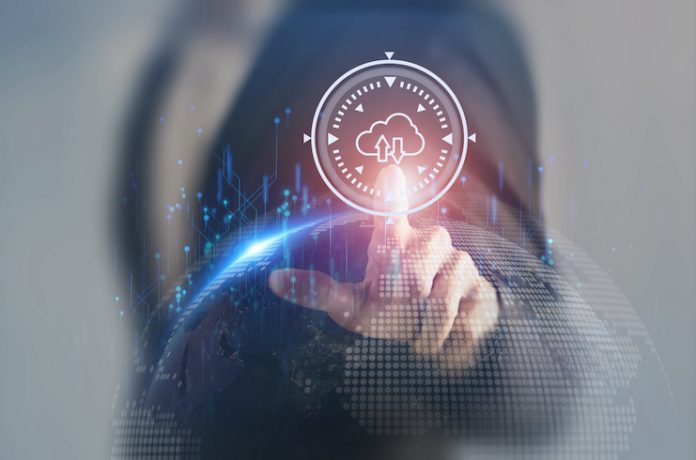
Travel has been trending upwards since mid-2021, and this summer, the industry experienced a serious surge. Recent data from the U.S. Transportation Security Administration showed that more than 8.7 million people passed through airport security over the 2022 Labor Day weekend, topping pre-pandemic crowds for the first time since 2019. But, this doesn’t mean we’re back to business as usual. If the past few years have taught us anything, it’s that the future of hospitality will be written by organizations that innovate.
For hoteliers, innovation will require investment in the right technology, coupled with reporting and analytics to make informed decisions in real-time and to continuously refine long-term strategy. Hotels that are staying ahead of the competition are already making the right moves to future-proof their operations for the betterment of both guests and staff.
Here are three technology upgrades hotel executives should consider investing in:
1A Modern, Cloud-Based PMS
The property management system (PMS) is the heart of a hotel’s operations. Formerly, most systems were on-premises, operating on a local network, but today’s hotels demand the flexibility and open capabilities of a cloud-based PMS. That’s because on-premises systems are becoming harder to navigate, from difficulty integrating third-party technology to high overhead costs in maintaining these systems safely and difficulty troubleshooting when something goes wrong. On-premises systems demand time, money, and resources that could be saved by migrating to the cloud.
A cloud-based PMS provides flexibility when it comes to staffing, which is perhaps the industry’s most pressing concern as properties face staffing shortages. Today, the user experience has proven to be a factor in staff retention levels, especially for a workforce without previous hotel experience. With difficult-to-learn systems, staff can become frustrated and contribute to higher turnover. The cloud frees staff from the front desk, allowing employees to serve guests and complete administrative tasks from mobile devices anywhere on the property.
While most hospitality workers tend to be on-property, the cloud allows for a more flexible staffing model, making it possible for employees to work remotely if their position permits. Additionally, the cloud enables remote and hybrid employees to access information such as revenue dashboards, daily reports, and room assignments from either their desktop or a mobile device. The ability to support all members of a team from any location proves paramount in today’s workforce, where the demand for remote jobs remains steadfast.
Beyond improved workforce flexibility, the cloud also gives hoteliers the ability to leverage a broader partner network. By sourcing tools from a variety of vendors, hoteliers can customize their PMS to best fit their needs. The ability to “plug in” new tools—chatbots, analytics, or new upselling tools—quickly and easily helps properties stay agile and innovate more quickly to meet changing consumer demands. Moreover, a cloud-based PMS will regularly receive security and other software updates, ensuring robust cybersecurity and usability over time.
2Contactless Tech
Demand for contactless technology went through the roof during the pandemic. Guests didn’t want to visit a front desk, or sit in a crowded hotel lobby; instead, they wanted self-service options and experiences managed on their mobile devices.
In response, hotels rapidly adopted quick fixes like kiosk check-in processes, contactless card readers, and digital room keys to improve guest and staff safety. Now, those quick fixes have become permanent (and expected) fixtures of a hotel stay.
Many aspects of a hotel stay can be made contactless without losing the high-touch experience of a guest hotel stay. Some guests might have grown to appreciate the flexibility to order their food or drink ahead of time for pick up, as well as having the option to pay with a digital wallet on their mobile device instead of cash. Additionally, guests, specifically those in a rush or with children, might applaud the convenience of a kiosk or in-app check-in and check-out. Some travelers, often including those staying at luxury properties, choose their hotels based on guest service and the white-glove experience. The key is enabling guests to choose their journey and create their perfect stay.
3Artificial Intelligence and Automation
For guests and staff alike, simple requests like fresh towels or room service orders are easier when handled through a digital channel, versus calls or visits to the front desk. Machine learning and AI-powered tools are making that possible with technology like chatbots, giving guests the power and independence to navigate their stay on their own terms.
While some guests prefer a traditional, people-centric hotel experience, many favor self-service options that allow them to handle situations and requests without interacting with a human. Hotels can stand to benefit from this technology: consider that while a virtual assistant stands by, ready to tackle requests, staff members have more time to be present and interact with guests rather than tending to redundant tasks like answering the front desk phone. These technologies have the two-fold benefit of alleviating labor shortages and building a more efficient service model going forward.
AI can also help speed up tasks like assigning rooms and monitoring housekeeping status automatically, saving hours of employees’ time each day. Similarly, AI can help hoteliers increase incremental revenue by intelligently and successfully upselling additional perks to relevant guests without exhausting staff resources. By easing employee workloads, staff can prioritize the guest experience and maintain high-quality service, which not only improves customer satisfaction but also increases employee attrition.
As the new normal continues to encourage the evolution of hotel operations, it is more important than ever to make strategic, long-term technology investments that will keep properties competitive for the long haul. Don’t fall into the trap of “shiny toys,” but instead opt for investments like cloud, contactless tech, and AI-powered tools that can enable a property to evolve as quickly as guest demands.
About the Author
Tanya Pratt is vice president of strategy and product management for Oracle Hospitality.











